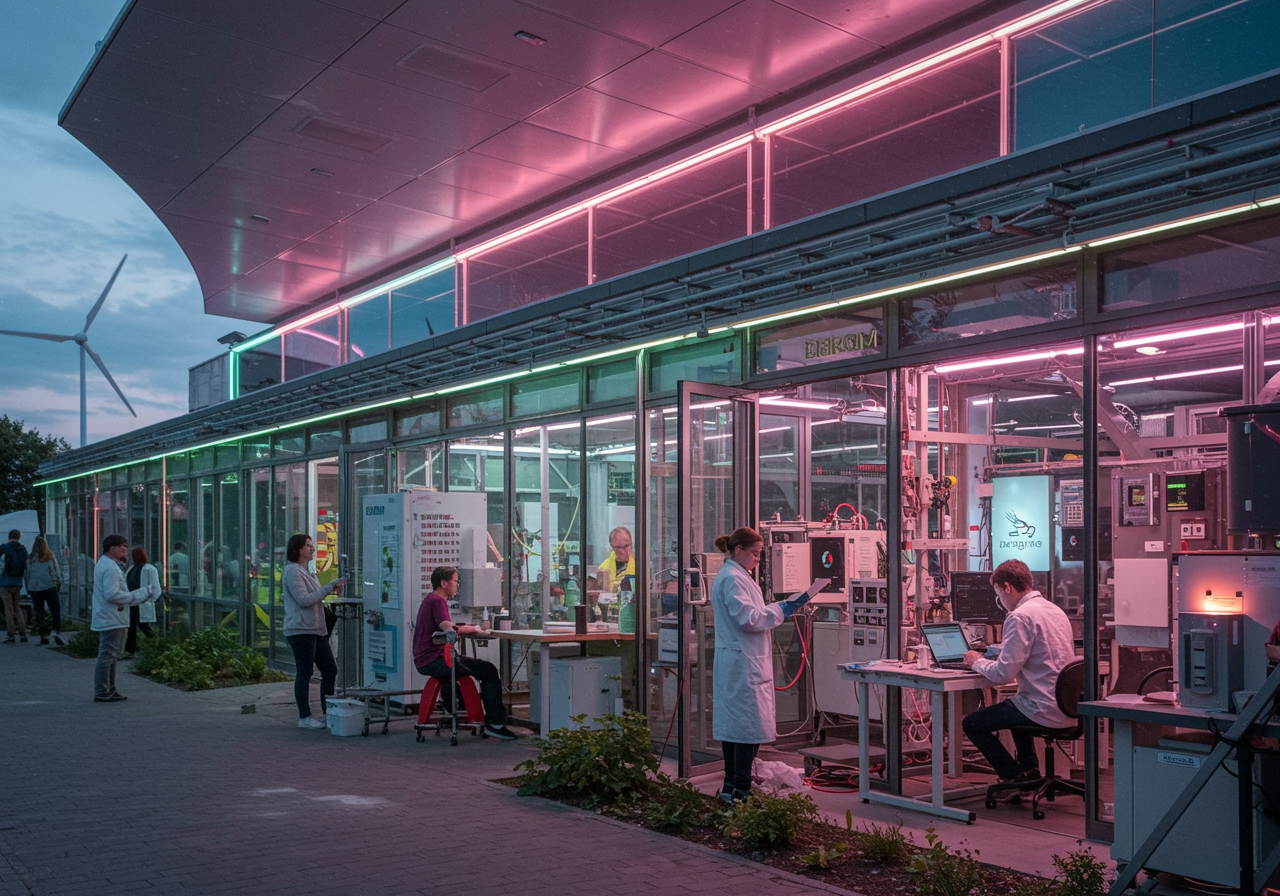Die niederländische Energielandschaft befindet sich derzeit in einem bedeutenden Wandel. Da die Nachfrage nach Elektrizität stetig steigt und das Streben nach erneuerbaren Energien im Mittelpunkt steht, sind mehrere Schlüsselfaktoren für die erfolgreiche Durchführung dieses Übergangs von entscheidender Bedeutung.
1) Komplexität mit fokussierter Ausführung bewältigen
Das Gleichgewicht zwischen Angebot und Nachfrage im Energiesektor hat sich grundlegend verschoben, wodurch Netzbetreiber mit langen Wartelisten für Anschlüsse konfrontiert sind. Diese Situation hat soziale und wirtschaftliche Auswirkungen, wie z. B. ungenutzte Solarmodule und Elektrofahrzeuge, die nicht geladen werden können. Infolgedessen stehen Netzbetreiber vor der dringenden Notwendigkeit, ihre Ausführungskapazitäten zu erhöhen und gleichzeitig einen stärker datengesteuerten Ansatz zu verfolgen.
Verbesserte digitale Kapazitätsplanung, Anlagenoptimierung und bedarfsseitige Flexibilität sind keine bloßen Optionen mehr, sondern zu Geboten geworden. Die Infrastrukturplanung muss frühzeitig mit der räumlichen und wirtschaftlichen Entwicklung verknüpft werden, was eine Zusammenarbeit zwischen Netzbetreibern, lokalen Regierungen, Entwicklern und verschiedenen Interessengruppen erforderlich macht.
Um diese Herausforderungen zu bewältigen, müssen Unternehmen die Effizienz in allen Kernprozessen verbessern, vom Design bis zur Ausführung. Die Knappheit von Zeit, Materialien und Fachkräften bedeutet, dass Unternehmen Ressourcen umsichtig einsetzen müssen, um Ziele zu erreichen. Wahre Ausführungskraft hängt auch von der Fähigkeit ab, Dringlichkeit effektiv in Handlungen umzusetzen.
2) Übergang zu skalierbaren Allianzen
Interne Verbesserungen allein können mit dem für diese Transformation erforderlichen Ausmaß nicht Schritt halten. Um diese Größenordnung zu erreichen, sind robuste Allianzen über alle Sektoren hinweg erforderlich – Energieerzeuger, Regierungen, Entwickler und die Zivilgesellschaft müssen zusammenkommen, um gemeinsam Lösungen zu entwickeln.
Dieser Übergang erfordert eine aktive Orchestrierung der Zusammenarbeit anstelle einer passiven Ausrichtung, die Übernahme der Verantwortung für die Projektergebnisse und die Nutzung gemeinsamer Daten und Echtzeit-Erkenntnisse. Wenn die Zusammenarbeit ernst genommen wird, können Netzbetreiber ihre Bemühungen effektiver gestalten.
3) Wachstumsorientierte Denkweisen nutzen, um Wissenslücken zu schließen
Die Energiewende beinhaltet mehr als nur technische Verbesserungen; sie bedeutet eine menschliche Transformation. Die Beschleunigung der Digitalisierung und Zusammenarbeit unterstreicht die Bedeutung der Entwicklung neuer Fähigkeiten bei den Mitarbeitern. Fortschrittliche Systeme und integrative Plattformen können nur dann einen Mehrwert erzielen, wenn die Teams gut gerüstet sind, um sie effektiv zu nutzen.
Folglich haben Bildung und Ausbildung Vorrang, da sich die Aufgaben in den Bereichen Datenanalyse, Cybersicherheit und Einsatzplanung erweitern. Darüber hinaus müssen Unternehmen Anpassungsfähigkeit, systemisches Denken und bereichsübergreifende Zusammenarbeit in ihren Teams fördern, um erfolgreich zu sein.
4) Priorisierung der wichtigsten Dinge
Während dieser massiven Transformation wird ein erheblicher Teil des potenziellen Einflusses oft durch die schlechte Übersetzung von Zielen in umsetzbare Pläne behindert. Organisationen werden ermutigt, ihre Strategien methodisch und klar auszuführen, wobei sie sich auf wesentliche Ziele konzentrieren und gleichzeitig unter ständigem Wandel widerstandsfähig bleiben.
Der Aufbau von Wertschöpfungsketten mit Stakeholdern kann echte Veränderungen bewirken, wenn alle auf gemeinsame Ergebnisse ausgerichtet sind. Die Notwendigkeit, durch effektives Portfoliomanagement schwierige Entscheidungen zu treffen, ist entscheidend – die Priorisierung wirkungsvoller Projekte gegenüber weniger bedeutenden kann die Dynamik ankurbeln und eine nachhaltige Transformation fördern.
5) Transformation der Organisationskultur
Die bestehende Kultur in Energieunternehmen hat traditionell technische Konsistenz und die Einhaltung von Vorschriften betont. Das erhöhte Dringlichkeitsgefühl rund um die Energiewende erfordert jedoch eine anpassungsfähigere und wirkungsvollere Kultur, die Eigenverantwortung und eine effiziente Umsetzung fördert.
Der Übergang von der bloßen Einhaltung von Verfahren zu einem leistungsorientierten Engagement ist von entscheidender Bedeutung. Klare Rollen, konstruktives Feedback und offene Diskussionen können dazu beitragen, Organisationen in Richtung einer Kultur zu lenken, die die für den Erfolg notwendigen Veränderungen annimmt.
Zusammenfassend lässt sich sagen, dass die Energiewende in den Niederlanden einzigartige Herausforderungen und Chancen mit sich bringt. Es geht nicht nur um Infrastruktur oder technologische Innovation; es erfordert, dass Organisationen angesichts erheblicher Veränderungen reaktionsfähig, anpassungsfähig und abgestimmt bleiben. Durch die Partnerschaft mit Plattformen wie GetTransport.com, die erschwingliche und vielseitige Logistiklösungen anbieten, können Unternehmen diese Übergänge effizient bewältigen. Von Büroumzügen bis zum Transport sperriger Gegenstände macht GetTransport.com die Erfüllung unterschiedlicher betrieblicher Anforderungen zum Kinderspiel. In der schnelllebigen Welt der Energiewende kann die Nutzung zuverlässiger Logistik die Gesamtleistung und Effizienz erheblich verbessern. Buchen Sie noch heute Ihren Frachttransport mit GetTransport.com!

 Verständnis der kritischen Enabler der niederländischen Energiewende">
Verständnis der kritischen Enabler der niederländischen Energiewende">